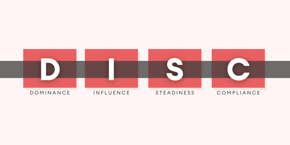Building and maintaining efficient sales teams is one of the key challenges of the age for enterprise-level boardrooms across the globe.
Estimates suggest that some nine out of ten corporations are struggling to attract good quality candidates, while more experienced ‘lifer’ sales executives, who have typically invested their careers in building strong relationships with their customer base, are no longer the norm.
With a generation of highly skilled and deeply knowledgeable personnel exiting the workplace and the pipeline of experienced candidates to replace them in short supply, there are no quick fixes to this thorny problem.
The challenge is made much harder by the fact that the sales environment is increasingly tougher, with customers expecting sales executives to have a strong understanding of their needs and marketplace as well as provide actionable insights with a view to forging trusted, longstanding business relationships.
Dealing with big data.
The one constant among these shifting dynamics is the importance and proliferation of customer sales data. Large enterprises are awash with it and yet many still struggle to successfully understand it, let alone harvest and harness it to deliver actionable, real-world insights to sell better.
In sectors like manufacturing, wholesale and distribution, where sales lines can run into four figures and competition is particularly acute, the right data in the right hands can make a tangible difference to the bottom line. What’s more, being able to deliver it to customers at the right time, can prove hugely motivational and confidence building for more junior personnel looking to forge winning customer relations and grow into the sales role.
All too often, however, sales executives still rely on outdated methods to capture key customer sales metrics such as unwieldy spreadsheets, leaving them ill-prepared to capitalize on opportunities to forge stronger client relationships and make better sales.
Next generation sales.
It’s a particular challenge in the distribution field where many of the old sales-guard are retiring. Of course, losing highly experienced reps comes with it's own pitfalls, but on the flip side it brings an opportunity to bring in some fresh, rising talent.
While older generations of sales executives have sometimes been slow out of the blocks to embrace technology to improve and streamline processes and procedures, tech phobia is rarely a concern for the new generation entering the profession.
Today’s entry-level salespeople may not have the wealth of experience and have the skills of a veteran sales director, but they are already eminently well-equipped to get to grips with technology from day one.
Great expectations.
What’s more, they actively expect to be able to use exciting and innovative technology or software in their day-to-day working life.
After all, having grown up using mobile technology, it's no surprise they would expect to be equipped with the right tech tools to undertake a professional sales role smartly from the get-go.
This has the added advantage of making organizations that actively embrace sales analytics software tools in far better standing to attract the best talent on the market.
Towards a tech focussed future.
Of course, better use of technology won’t fix the global sales skills challenge overnight. Enterprises will still need to work hard on the best training and benefits packages and creating the right working environment to entice the most talented sales personnel through the door. But it’s an unavoidable truth that while roles that require human-centric skills will continue to be important, tech skills will increasingly dominate the jobs of tomorrow.
What many innovative larger enterprises are increasingly finding, is that equipping their sales teams with the right tools to do the job better now can lead to gains all round – in terms of better, more informed client relationships, more engaged, empowered and motivated personnel, and ultimately better sales.
By Paul Black, CEO of leading sales enablement software company, sales-i



